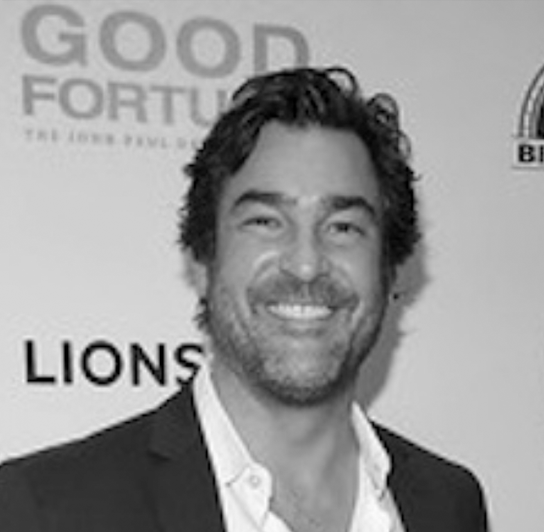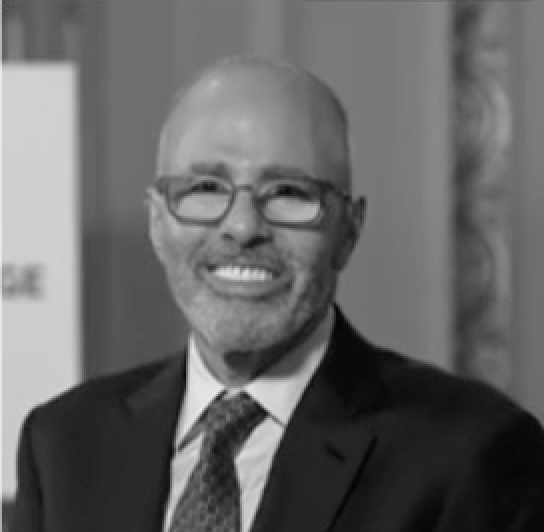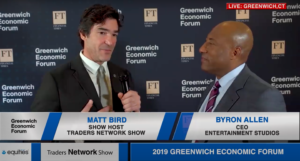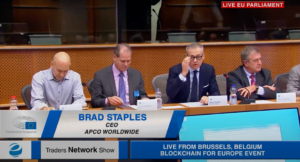Uli Broedl, Wendy Charles, John Bass, Frank Ricotta, and John Katsulas on ‘Where Does Healthcare Need Blockchain’ at Converge2Xcelerate | Traders Network Show – Boston, MA
Contributed by: Show Editorial Team
Uli Broedl, Wendy Charles, John Bass, Frank Ricotta, and John Katsulas at Converge2Xcelerate Conference (Boston, MA)
HIGHLIGHTS
- Boehringer Ingelheim is the largest family owned pharmaceutical company in the world
- Hashed Health delivers blockchain solutions to healthcare providers to decrease cost of care
- 55% of healthcare applications will have adopted blockchain for commercial deployment by 2025
FULL COVERAGE
INTERVIEW TRANSCRIPTS: Frank Ricotta, CEO/Co-Founder of BurstIQ, Uli Broedl, VP of Medical & Regulatory Affairs for Boehringer Ingelheim Canada, Wendy Charles, Regulatory Scientist for Denver Health, John Bass, CEO of Hashed Health, and John Katsulas, Executive Director of Boston Debate League
Uli Broedl – VP of Medical & Regulatory Affairs, Boehringer Ingelheim Canada: 00:00
Our topic is where does healthcare needs blockchain technology and we have split up to have a bit of a controversial discussion. Colleagues who are more a bit of the skeptics that includes the colleagues who are saying blockchain and Franklin with this, I guess we start, my name is Uli Broedl I’m vice president medical regulatory affairs for Boehringer Ingelheim Canada which is the largest fully family owned pharmaceutical company. So we think in generations as opposed to financial quarters and this allows us to invest and drive innovation to serve the needs of patients in the healthcare system. So Boehringer. Ingelheim, even though I’m on the skeptic side, is currently involved in a number of blockchain pilots and proof of concept studies including supply chain management, administration coordination, payment of benefits in the Kara network, clinical drives. We are part of melody and IMI blockchain technology. And you may ask what is the common denominator of all of those portraits and in fact it’s trust or lack thereof amongst all of the stakeholders.
Uli Broedl – VP of Medical & Regulatory Affairs, Boehringer Ingelheim Canada: 01:24
So you could safely conclude when where does healthcare need blockchain anywhere where trust is at stake. Well, I do believe this is too short fetched. I think this is only the prerequisite, the entry ticket, but if you wanted to go above and beyond proof of concept and pilots, you need an environment that is ready to adopt and I could ask my fellow panelists and all of you guys, is the environment truly ready for broad adoption if you are still discussing interoperability, cross blockchains, scalability, but I don’t want to go there. I want to discuss a few topics briefly that are less frequently discussed and it’s more about data standards, privacy and liability in case of privacy breach in a decentralized ecosystem. I want to quickly touch on regulatory standards and conclude on something that seemingly basic, but we’ve heard it in our previous session which is awareness of the value proposition of blockchain technology in healthcare data standards. I can be very blunt, I do not think there is any data standards right now in blockchain. You can put data on the chain of chain, you will have some colleagues saying had to minimize PII on the other side, you may put healthcare data on chain. I believe Frank BurstIQ and in futures to put out a press release where you stated that you store health data on chain.
Uli Broedl – VP of Medical & Regulatory Affairs, Boehringer Ingelheim Canada: 03:17
So I’m asking you guys as a patient, as a physician, as a healthcare provider, as far as our company representatives, we want to make sure that it all solution is HIPAA compliant and we respect privacy. But who does this assessment? Is it the tech company? Is it a Noya? Is it the Navy department, is it consultant? Is it the shared wisdom of the governance structure? Who tells us that fancy encryption algorithms if you had data, Unchained searches, homomorphic encryption is as secure as conventional encryption in who in case of a data breach would be liable in a decentralized ecosystem. Are we there yet for broader adoption? Now, healthcare is tightly regulated and there’s a company representative, of course, I want to have certainty if we invest money that there is acceptance by regulators. For instance, the US FDA and not only acceptance on a conceptual level but on an implementation level. If the US FDA is leading that with the digital health policies across all the health authorities. Yet at the same time in the US FDA in this point in time would not accept data submissions that are purely blockchain based. So I’ll be ready for broad adoption.
Uli Broedl – VP of Medical & Regulatory Affairs, Boehringer Ingelheim Canada: 04:51
Lastly, this is my personal experience and you may have heard differently from some of the consulting companies that awareness of the way your proposition understanding of the value proposition of blockchain technology in healthcare is somewhat low. Like this coupled with the uncertainty really is a barrier to books for the adoption. So yes, I am on the skeptical site for this panel discussion, but I do want to close with a call to action from my side. It is the early adopters. The entrepreneurs that shape the ecosystem data standards. Regulations will not fall from heaven. So I do think there is great potential of blockchain technology in health care. At the same time, I do not think we are there yet and this channel or Frank or would like to hand it to you.
John Bass – CEO, Hashed Health: 06:10
When I started Hashed Health in 2016 I had these grand visions of what the technology would do for healthcare and it was all based on Sitoshi vision of a totally decentralized and distributed solution. And I imagined all of the value chains in healthcare, whether whatever value chain you care about, whether it’s the pharma value chain, a medical device, supply chain, medical records the claims life cycle identity, value-based value-based initiatives and these things all suffer from trust and transparency and incentive alignment issues. And they are all dominated by intermediaries who some people feel soak up a lot of value and don’t return enough value back to the endpoints of the, of the value chain. And you know, should be disintermediated. And so there’s this great vision of disintermediation.
John Bass – CEO, Hashed Health: 07:32
And the idea was you spread disintermediation de-centralization like butter on a piece of toast. It would apply to every use case. And that was the 2016 vision that Bitcoin inspired. And so I agree, it’s not my job to agree with you Uli, but in this debate, and I’m going to tell you why I agree with some of the things and I saw those things in 2016 and I believed them. That’s how things were going to go. But over the last three years, we’ve had to get very practical and it hashed. We worked on a lot of different use cases with a lot of different large companies use a lot of different protocols. And we’ve seen the maturation of these technical models and these business models and these governance structures and these networks. And we’ve seen how it may be, not decentralization, that’s important, but collaboration and interoperability and sharing solutions to common problems that we should be doing at least in 2019 and 2020.
John Bass – CEO, Hashed Health: 08:37
And so I say to UUli and Wendy that these things can be accomplished using the technology that’s available today. And the idea that it’s standards that are holding us back, well, there’s that old saying that standards are like toothbrushes, right? Everyone has one, but you don’t want to use anyone else’s that is not new. And it’s been an excuse that we’ve used forever around why we can’t innovate. And I’ve been part of two previous companies, successful companies with successful exits that have solved interoperability and challenges of where we’ve started and sold a bundled payment solution to HCA about five years ago. And we built a supply chain data market that managed both sides of a supply chain exchange back in the late nineties. And so every time we did these things, people from big companies would tell me, you can’t look. The technical part is the easy part. You cannot change how we do business like that. And I’ve proved them wrong two times before. There are certain use cases that are available for us in 2019 and 2020. Credentialing ,value based contracting and a handful of others. And we see solutions and we see networks and we see innovative new business models that allow us to solve those old problems in brand new ways and we see these things coming to life and delivering value.
Wendy Charles – Regulatory Scientist, Denver Health: 10:18
Excellent. Hello everyone. I’m Wendy Charles. I am the only representative from a healthcare organization on this panel. And while healthcare has many broad definitions, I’m going to talk about care delivery itself and focus on health records even though there are many different applications. So I work in an academic medical center that focuses on research and care of the indigent. It’s a safety net hospital in the Denver area. And so it colors my thinking quite a bit to work for a nonprofit and that whose focus is primarily on delivering care. And I am going to share some reasons why many healthcare organizations are not quite ready for blockchain. And I hope that it educates the audience as well as maybe counters some of my colleagues points. So among the first considerations is there’s rarely a discussion about what are the mission and values of the healthcare organization.
Wendy Charles – Regulatory Scientist, Denver Health: 11:33
What are the business objectives for the upcoming year? What have they budgeted for? And many healthcare organizations have a very slim margin and are trying to achieve many facets of care and including uncertainty about future funding, especially for Medicare and Medicaid dollars. So any type of proposal involving blockchain needs to fit into the ecosystem that, that healthcare organization is part of and be aligned with their mission, vision and their objectives for the upcoming year. As a second point, Uli mentioned that there’s regulatory uncertainty. Now, while they regulations are intended to be technology neutral we haven’t received definitive guidance about how best to implement blockchain within the regulations that we must follow for HIPAA in particular, we feel that there are methods for successful implementation and documentation, but there is a sense of uncertainty in healthcare organizations because it hasn’t been tested yet and there hasn’t been any case law yet for us to lean on to see exactly how it was interpreted.
Wendy Charles – Regulatory Scientist, Denver Health: 12:53
It’s not certain how blockchain can be implemented with some of the legacy systems that we have. And just as a frame of reference a typical healthcare organization has an average of 10 disparate systems that they have to link together in order to provide care such as a laboratory system and a pharmacy system and a billing system and the health record system. And so when we hear discussions about how blockchain could best be implemented, it’s like, well, how are you going to network and how are you going to be able to extract data from some of these legacy systems that have such difficulty with their programming capabilities anyhow. Some of the systems that we use at our organization can’t even be connected to the network. So what we’re really looking for is evidence about, well, what are some successful full-scale implementations? Where do you see the return on investment? What kinds of problems have emerged and how have they been dealt with? What kinds of documentation could you provide so that we can feel confident that you are not just providing the technical safeguards that we would need for HIPAA, but also help us meet the administrative and physical safeguards. So I think there is tremendous potential. Many healthcare organizations are engaging in what’s called blockchain tourism and they’re curious and interested, but not quite ready to commit yet.
Frank Ricotta – CEO/Co-Founder, BurstIQ: 14:32
These guys are all smarter than me. Okay. I’m on the pro side I think it’s a fair statement that does healthcare need blockchain? The answer’s yes. And just about everywhere. Is it ready? That’s a different question. And so you have to really look at the spectrum. I think John painted it well from the standpoint of the need is universal across all aspects of the health delivery environment. And not just when we talk about healthcare and you know, our sick care going to a hospital or a doctor, but take it all the way to clinical research organizations and biotech and pharma and even kind of the health and wellness side of life. And so when you’re on the early phase of adoption of new technology, particularly disruptive type technology and we ought to kind of baseline blockchain is truly a new technology, but it’s been around for 40 plus years in terms of a lot of the cryptographic research and we use elements of it every day in our life.
Frank Ricotta – CEO/Co-Founder, BurstIQ: 15:39
We use public private keys or use digital certificates. There’s elements that then make the processing of the system a little more distributed. That’s unique. It’s that trust establishment. So when you take a step back and say, okay, what part of the market is ready not just needs and where all the internal immune systems that are just pushed back in any kind of technology adoption. And one would say that on the traditional health delivery side of life, in terms of hospital on docs, pretty late adopters for the most part when it comes to IT based technology nonmedical treatments, but it base technologies. Conversely, if you look at this from a spectrum, we have one government that’s pushing a lot of data transparency and did access for people. You have 5,000 plus or so hospitals and various sizes and forms.
Frank Ricotta – CEO/Co-Founder, BurstIQ: 16:32
We’ve got a million and a half medical professionals in the United States and we can talk outside of the United States because there was a broader name. But then we have 300 million people and then across the world we have this broader need for general health access and equity that I can’t go around the corner and just skip an appointment. So do I think the market is ready? Yes. And I think it’s person centered. It’s time for us to move out of this patient encounter type model where the systems are geared towards the payer and the provider and get it more person centric than the longitudinal method and attack it from that perspective where that adoption happens and you know, there isn’t a single bit of technology that’s adopted for technology’s sake. It’s all about what capabilities are provided, how easy is it to use, and we can go back to the internet and distributed content publication didn’t really materialize how this funky protocol called HTP emerged with, most of us don’t even know, right?
Frank Ricotta – CEO/Co-Founder, BurstIQ: 17:32
We just know we can publish content and if you go back farther on the network side of life, all the telecom providers who provided all the infrastructure in the world are saying there’s this thing called ATM asynchronous transfer mode, not the money machines. And guess what? That doesn’t really exist anymore. This thing called Ethernet, just what blew by it and evolved rather rapidly. And that’s what I think you’re going to see within the adoption space. You’re going to see really this distributed adoption that’s going to put pressure back on traditional systems. But what they’re going to find is that it makes user engagement and their engagement more meaningful with patients. So I see the sector of health is really this emerging new access economy, direct primary care, health and wellness and access to precision and personalized medicine.
John Katsulas – Executive Director, Boston Debate League: 18:27
All right, so we have four speeches two pro two con. Now we have the opportunity for the audience to ask questions. They could be informational that you can argue with any of the four panelists. So does anyone have a question?
Speaker 1: 18:44
So at the end of the day, blockchain is infrastructure, right? At the end of the day, what we have to do in order to promote adoption is to speak the language of the clinician. At the end of the day, we have to frame what we represent. I would say in the framework of the quadruple aim, patient population, health and quality of that provider experience, the patient experience. The value based care. Okay. We have to speak the mind of the permission and put the patient in the center of every message that we deliver. That’s where what’s going to drive the adoption. And the physicians will help us drive that adoption which we’ll have to overcome. Just like any other technology. We can continue to speak technical liners, infrastructure base language, we’re going to lose them. That’s all I have.
John Bass – CEO, Hashed Health: 19:48
And then I think that was a vote for the Pro!
Wendy Charles – Regulatory Scientist, Denver Health: 19:56
Yes. And thank you Ann for that astute observation, there’s actually been a lot of research done on health information technology implementation and how to get health care centers to adoption. And what you described is similar to methodology that was created at the University of Colorado where there is a structure for how we engage all the stakeholders involved with using the system and how we’d get a physician champion in order to help other physicians understand the benefits and the purposes and the methods by which the new system will be implemented.
John Bass – CEO, Hashed Health: 20:37
And just to add so I think blockchain, we think a lot about the quadruple aim, cost, quality, patient experience, physician experience. The beautiful thing about these solutions that we’re imagining and building and deploying is that it’s as much social innovation as it is technical innovation. And that is the power. That’s a big time thing that’s overlooked by a lot of people who just see it as the next internet. I mean that social component to what we are doing every day that network piece of the three areas that the three dimensions is perhaps the most disruptive.
Speaker 2: 21:22
How many Blockchain companies do you see out there still driving the message about chain In two years?
Frank Ricotta – CEO/Co-Founder, BurstIQ: 21:38
2 Years. Just kidding. You know, thinking towards the horizon two to five years, we’re not going to be talking about blockchain. And so I think it’s going to fall the and I’ll go back to your internist. It’s going to really evolve through that kind of adoption where there were a whole lot of companies that built a lot of the infrastructure that as, as end users we never knew were there. And so I think it ends up into a handful at the infrastructure level. But then at the application level, I’m hoping hundreds and thousands because really what is the promise in this collaboration and really grabbing the wisdom of the crowd and put it in a person back at the center. It allows us to create a holistic profile of somebody over time, because let’s face it, we’re going to see 16 docs. We’re going to live our lives 99% outside of a healthcare encounters. And so to be more effective with the limited resources we have, which are people, resources, like docs, that all has to come together. And this is where the promise really can materialize. And I think most of the big tech companies will have some, some blockchain play in health at some point in time from an infrastructure perspective, we already see it happening and they got plenty of money to buy people.
John Bass – CEO, Hashed Health: 23:02
I think it’s a great question. Like we got five active projects going on at Hashed and one of them very intentionally does not mention blockchain at all. In anything we do or say in that project. And professional credentials exchange, we don’t have to talk about blockchain is not the lead. It’s this new way of solving an old problem that’s the lead and the value that that can create for health systems. The revenue cycle this year on credit, that’s the lead. But we still have some projects where blockchain seems to be the lead. So it’s kind of a mixed bag. I think we’re in a transition period. Certainly the last three years blockchain has been the lead, but I’d say in two years it certainly will not be the majority of things we’ll be talking about this convergence of blockchain and machine learning and AI and precision medicine and IOT. And you know, the blockchain piece of it will fade away.
Speaker 3: 24:00
All right, thanks. The question I’m curious. So I know your name, I haven’t had a chance to write, but I know that you have a lot of studies in production we’ve worked from with, how would you convey, for instance, Wendy and her organization to her?
Frank Ricotta – CEO/Co-Founder, BurstIQ: 24:28
Yeah, that’s a great question. I mean, for two years we never mentioned the word because it was too scary. And then in a normal engagement mode, we really focus on the problem first and then as we dive into how we solve the problem, then that then that comes up. So what I would I start as an advocate if it’s just an advocate, I would start with some educational kind of backgrounds to be blunt. But really if it’s in a buying mode, we have to solve a problem and that’s and solve problems are not solving very well right now. Without the capabilities blockchain provides us because we’re one of those companies, we don’t believe blockchain by itself is going to solve anything and you have to wrap solutions and capabilities around it and higher-level protocol stacks more or less. And that’s where it fits. And we still have a struggle cause there’s still a pretty steep educational and fear component in the sales cycle. I don’t think I answered it well, but it’s persistence and being there.
Uli Broedl – VP of Medical & Regulatory Affairs, Boehringer Ingelheim Canada: 25:34
I don’t think it speaks to the point that you made that was made several times today. It’s about understanding the way you propose as opposed to pushing fancy tech and the value proposition is not broadly understood or appreciated or it’s understood that then you have still so many moving parts that you have to shy away from that option.
Frank Ricotta – CEO/Co-Founder, BurstIQ: 26:00
Yeah. I think language is an important thing. We don’t have a common language for the value problem. I mean there’s a great podcast where they’re talking about a cell phone and how many people in this room, a few years ago would say cell phone, my primary portal to the internet, this little screen and I’m doing all this stuff on it. We would just say, no, I like my big screen. The cell phones gave us GPS for location and a camera. And now it’s become our primary portal to do a lot of things. And that’s what blockchain is. It doesn’t do some things as well as traditional technology, but the feature sets that extend, that provide for the interconnectivity and the fluidity between the care continuum far outstretches traditional technology. And that’s where I see a pickup.
Speaker 4: 26:52
When you’re probably the expert on this, but do the others, if you had to explain to your board that you were going to pull the platform and the data that was on there is going to be shared custody amongst your constituents or stakeholders are going to be on there. Number one, would that resonate with them? Would there be fears? And if you can be successful in making that argument.
Wendy Charles – Regulatory Scientist, Denver Health: 27:16
Healthcare organizations do share quite a bit of their data already. So we are accustomed to thinking about how we as patients would love to own our own health information. But hospitals are already sharing data with researchers under typically a waiver of IRB for under a waiver of informed consent. We share with health information exchanges and the Denver area. We also have a program called the cords where we pool our data for consolidated research. And so sharing data itself isn’t novel to a healthcare organization. I think where healthcare organizations feel uncomfortable is about, what protections will be in place for the Phi protected health information that they are legally responsible for and what will be the governance of any additional sharing. And so I think it would be about what are the additional uses and how can we ensure appropriate protections. And one thing that I think about too is would our patients be comfortable with this, with any additional sharing. And would it be consistent with what they understand is being done with their health information?
Speaker 4: 28:32
Would that be hard to explain to the board even if the facts stated it? What’d you make people make a bold move that believe trump’s facts?
Wendy Charles – Regulatory Scientist, Denver Health: 28:45
The organization that I worked for has eased into different sharing mechanisms that have allowed it to become more comfortable and over time when there haven’t been breaches and there haven’t been misuses of data, they become increasingly more comfortable for the next application. So ultimately, they have to protect their patient’s data first and try to advance science and interoperability, health information exchange is next. But I do believe that with the right messaging and persistent messaging that we can help them understand the benefits.
John Katsulas – Executive Director, Boston Debate League: 29:30
We’re out of time. Okay. So thanks to everyone for this informative discussion.
For Link to Original Article, Click Here
All rights reserved to the Traders Network Show. No part of this publication may be reproduced, distributed, or transmitted in any form or by any mean including; photocopying, recording, or other electronic or mechanical methods, without prior written permission of the publisher, except in the case of brief quotations embodied in critical reviews and certain other noncommercial uses permitted by copyright law. For permission requests, write to the publisher addressed “Attention: Permissions Coordinator”








